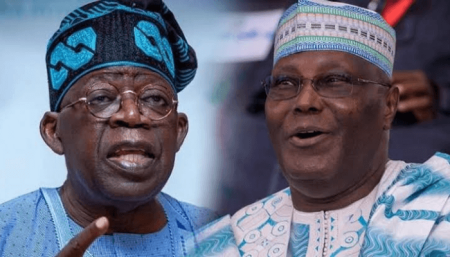28 November 2014, Sweetcrude, Abuja – The Coordinating Minister for the Economy and Minister of Finance, Dr. Ngozi Okonjo-Iweala has called on Nigerians not to panic over the falling oil prices in the international market, reassuring that the nation’s financial team has put in place strategies to manage oil prices as low as $60 per barrel.
She further noted that the Federal Government would not be stampeded into taking measures that would further aggravate the challenges the economy is going through.
The Minister who was speaking at the Securities and Exchange Commission, 4th Annual Capital Market Committee Retreat insisted that the recent drop in oil price did not come as a surprise and that what was needed was a systematic and focused approach to overcome the development.
According to her, “Panic is not a strategy. We are managing the situation to keep the economy on a stable sustainable course and we will not listen to those who want us to throw up our hands in despair and give up.”
She added that, “Our scenario based approach to managing the impact of the oil price drop is proactive and comprehensive. Even if the price drops to 60 dollars we are ready.”
Okonjo-Iweala stated that the Federal Government would adopt a systematic and focused fiscal approach comprising both revenue and expenditure effort.
She explained that, “As a central part of our strategy, we have revised our oil price expectations over the short to medium term! We have lowered our benchmark oil price assumption to $73 per barrel after some careful analysis of the possible future direction of oil price as well as the soft floor price for shale oil, which is estimated at about $75 per barrel. But let me clearly state that we are not taking a point-estimate position as regards the future price of oil.
“We fully recognize that oil prices may fall lower or even rebound. Prices could fall to $70 a barrel, $65 or even $60. Prices could also rebound to $75 – $85 a barrel. What we did was to work within a range of $60 – $85 thought possible by analysts, put a package of measures around an estimate at the midpoint of that range, that is, $73, and then build additional measures for scenarios at $70, $65 and $60 a barrel. The best way to manage uncertainty is to take a scenario-based approach to be ready for alternatives that may occur,” she added.
The Minister explained that part of the measures to shore up the country’s will include blocking all leakages and loopholes in government finances, capturing a large percentage of Small and Medium Enterprises (SMEs) in the tax register and increase the audit of companies from its present state.
Other measures to increase government revenue include surcharge on Luxury goods, compelling Government Agencies to comply with the country’s remittance laws and the review of waivers and levies granted companies. “As part of renewed focus on increasing tax revenues to mitigate the impact of the fall in oil prices, the revenue target for the next three years is three billion dollars. The FIRS working with Mckinsey has already made progress in reaching the target of N75 billion over and above the regular collection target.”
Despite the current challenges, Okonjo-Iweala insisted that government would not shy away from meeting its pro-poor objectives of infrastructural development and job creation.
She noted, “The common man is a priority in our strategy for the fall in oil price. His interests are a priority. That’s why even in implementing cuts in capital budget for 2015, the areas that are of most benefit to the common man, critical infrastructural projects like the Lagos Ibadan expressway, the second Niger Bridge, rail and power projects etc which will create jobs and enhance the comfort of our people will go on.”
“This pro-common man focus can also be seen in the safety nets which is a major priority for the President. The projection is for two to three million families across Nigeria will benefit from a conditional cash transfer scheme to encourage school attendance, improve health and nutrition, reduce infant and maternal mortality etc.
That’s why we are also focusing on improving value chain in agric, the number one source of job creation in the country.
“Anything that affects the poor, the young and vulnerable, we will prioritise it,” she added.




